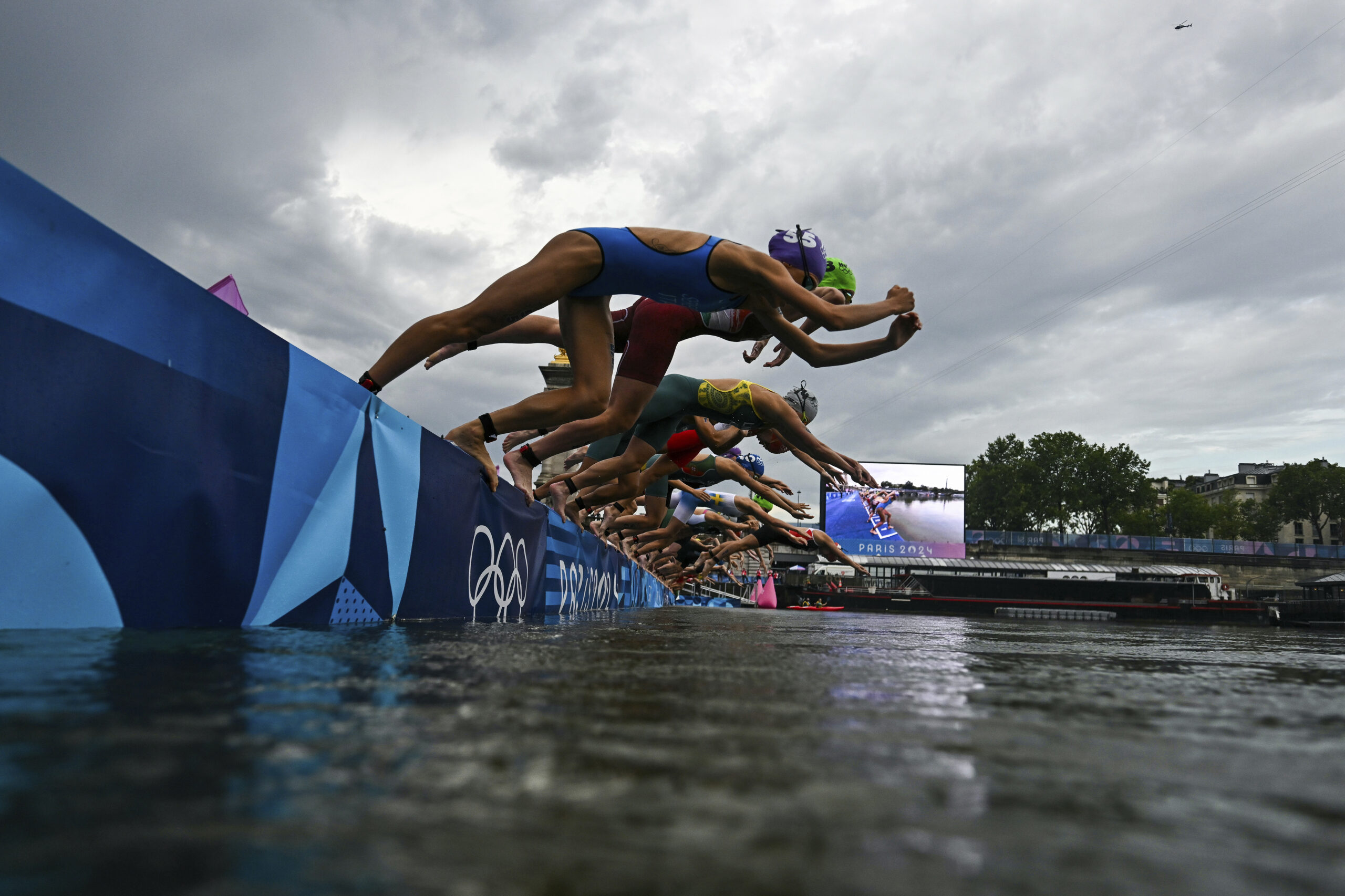
PARIS — After days of water-quality concerns caused by heavy rains last week put the swimming portion of the Olympic triathlons in doubt, the women dove into the Seine River early Wednesday, followed by the men a few hours later in a moment that Paris city officials praised as proof their years-long plan to clean the waterway had worked.
Even better for organizers was that Cassandre Beaugrand of France won the women’s gold medal, finishing on top of the Pont Alexandre III bridge and collapsing to the ground on top of the Paris 2024 logo, with a home crowd cheering her on.
“A historical day for Paris and I think for more than Paris, (but) for the Olympics,” said Pierre Rabadan, deputy mayor in charge of sport, Olympic and Paralympic Games. He spoke shortly after the triathlon was completed at the City of Paris Media Centre in the Carreau du Temple.
Sponsored Content
Athletes began near the Pont Alexandre III bridge that spans the waterway. Elevated levels of bacteria in the river pushed the men’s race planned for Tuesday to mid-morning Wednesday, nearly three hours after the women’s race started.
“We were all really confident jumping in there and I didn’t have to swallow too much water out there today as I was leading most of it,” said Australia’s Matthew Hauser, who finished seventh in the men’s triathlon.
“It felt a bit cold, especially because it was raining before the race,” added women’s silver medalist Julie Derron of Switzerland. “The water is just normal water. The strong current on the way back, that made it harder but other than that, it’s just normal water.”
The decision to go ahead with the swim was a big deal for the city and Olympics organizers. Officials undertook $1.5 billion in infrastructure to clean the long-polluted Seine.
“We dared to reverse the tide of history,” said Antoine Guillou, deputy mayor of Paris in charge of waste reduction and management, reuse, recycling and sanitation. “It was considered a dumping area. We came in the end to realize that it couldn’t stay that way. That’s precisely what the plan was about for the last eight years and as the Olympic Games were a tremendous accelerator for this plan. It gave everybody a deadline.”
Water quality in the Seine is affected by rainfall; heavy rain fell during Friday’s Opening Ceremony and continued into Saturday. The amount of rain in that 36-hour stretch was the equivalent of what Paris normally gets in the entire month of July.
Daily water quality tests measure levels of the E. coli. Aurélie Merle, the Paris 2024 director of sports, said Tuesday that one of four test sites along the triathlon course was below the threshold. Two other sites were just above the limit and one was more elevated, she said, citing a range of 980 to 1,553.
World Triathlon’s water safety guidelines and a 2006 European Union directive say anything beyond 900 colony-forming units per 100 milliliters is not considered safe or “sufficient.” Rabadan said at the Paris Media Centre that the most recent tests showed levels ranging from 500 to 600.
Rabadan said starting next summer there will be three zones along the Seine that will be open for swimming, including one near the Eiffel Tower.
“It was eight years planned for swimming in the river and first thing was to be able to make the competition in the river, but the legacy is huge,” he added. “It’s not just swimming in the river … a question of sustainability and adaptation for cities for climate change. We hope to be a massive example for cities.”












 Copyright © 2025 by Northstar Travel Media LLC. All Rights Reserved. 301 Route 17 N, Suite 1150, Rutherford, NJ 07070 USA | Telephone: (201) 902-2000
Copyright © 2025 by Northstar Travel Media LLC. All Rights Reserved. 301 Route 17 N, Suite 1150, Rutherford, NJ 07070 USA | Telephone: (201) 902-2000